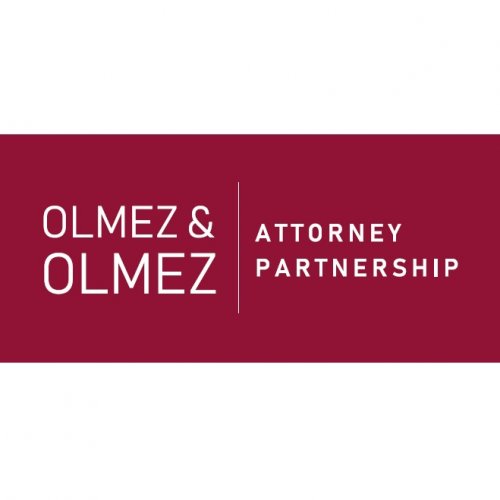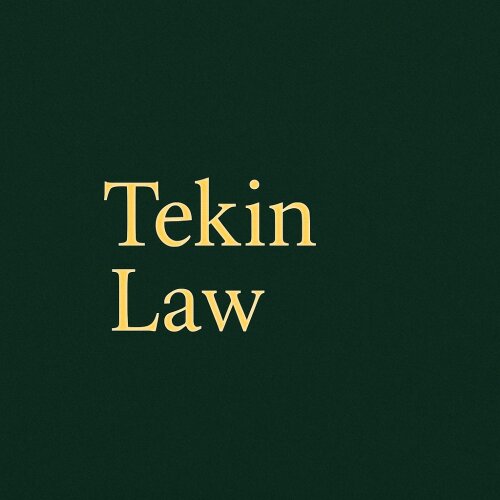Best Private Equity Lawyers in Istanbul
Share your needs with us, get contacted by law firms.
Free. Takes 2 min.
List of the best lawyers in Istanbul, Turkey
Legal guides written by Tekin Law Firm:
- Arbitration in Turkey
About Private Equity Law in Istanbul, Turkey
Private equity (PE) involves investment funds that directly invest in private companies or buy out public companies to delist them from stock exchanges. In Istanbul, Turkey, the private equity sector has grown significantly in recent years, attracting both local and international investors. Istanbul is considered the commercial heart of Turkey, and its vibrant business ecosystem, coupled with regulatory developments, make it a focal point for private equity activities. Private equity transactions typically require careful legal structuring, negotiations, and compliance with Turkish laws, making legal guidance especially critical.
Why You May Need a Lawyer
Engaging a lawyer is crucial in private equity transactions for several reasons. Here are common situations where legal help is necessary:
- Advising on deal structuring and negotiation
- Conducting legal due diligence on target companies
- Drafting and reviewing transaction documents, such as share purchase agreements or shareholder agreements
- Complying with local regulations, including approvals from regulatory authorities
- Handling cross-border investment issues and foreign investment restrictions
- Advising on tax implications of investments and exits
- Assisting in resolving disputes between parties
Private equity deals can be complex and involve significant financial stakes. Legal counsel helps mitigate risks, ensures compliance, and adds value through negotiation and strategic advice.
Local Laws Overview
Turkey's legal framework for private equity is shaped by several laws and regulations relevant to commercial transactions in Istanbul:
- Turkish Commercial Code (TCC) - Governs company formation, management, and operations for all legal entities in Turkey.
- Capital Markets Law - Regulates the activities of private equity investment funds and venture capital investment companies, including their registration, operation, reporting, and supervision by the Capital Markets Board of Turkey (CMB).
- Foreign Direct Investment Law - Facilitates foreign investment in Turkey, ensuring equal treatment between local and international investors, subject to certain sectoral restrictions.
- Competition Law - Overseen by the Turkish Competition Authority, merger and acquisition transactions that exceed certain thresholds must be notified for approval.
- Tax Regulations - Tax treatment of private equity funds and investors, capital gains, and transaction structuring are significant topics.
Istanbul-based private equity deals must follow rigorous procedures regarding due diligence, regulatory compliance, and often require formal approvals or filings with relevant authorities, especially in regulated sectors.
Frequently Asked Questions
What is private equity and how does it work in Turkey?
Private equity involves investing in private companies or buying public companies to restructure and eventually sell for a profit. In Turkey, private equity investments can be made through funds or direct acquisitions, subject to local laws and often requiring regulatory approval depending on the sector and transaction size.
Are there any restrictions on foreign investors in private equity transactions in Istanbul?
Foreign investors generally enjoy the same rights as Turkish investors, but there may be restrictions or additional requirements in certain sectors like banking, media, and energy. For most sectors, foreign participation is straightforward with proper regulatory compliance.
Which authorities regulate private equity activities in Turkey?
The Capital Markets Board (CMB) regulates private equity funds and investment companies, while the Competition Authority oversees antitrust aspects of transactions. Additional sectoral authorities may be involved depending on the target company’s business.
What due diligence is required before a private equity investment in Istanbul?
Legal due diligence is essential and commonly covers the target company’s corporate structure, contracts, regulatory permits, litigation history, intellectual property, labor matters, and financial obligations. Due diligence helps to identify risks and structure protective provisions in the transaction documents.
What are the typical steps in a private equity deal in Turkey?
A standard private equity transaction involves initial negotiations, execution of a term sheet, due diligence, drafting and negotiating transaction documents, signing, obtaining regulatory approvals, closing the transaction, and post-closing integration.
Do private equity transactions require regulatory approval in all cases?
Not every deal requires prior approval, but if the transaction meets certain turnover or asset thresholds or involves regulated sectors, notification to and approval by the Turkish Competition Authority or sector-specific regulators may be mandatory.
What legal documents are involved in a private equity deal?
Key legal documents include the share purchase agreement, shareholder agreement, investment agreement, disclosure letter, and ancillary documents like non-compete or employment contracts. Each must comply with Turkish law and address specific deal terms.
How are private equity funds structured in Turkey?
Private equity funds are typically established as closed-end funds and managed by licensed portfolio management companies. These funds must comply with the regulations of the Capital Markets Board regarding establishment, management, and reporting.
What are the taxation considerations for private equity investments?
Taxation of private equity investments involves corporate income tax, withholding tax, and capital gains tax. Structures and strategies may be used to optimize tax treatment, but professional legal and tax advice is strongly recommended.
Can disputes in private equity deals be resolved by arbitration in Turkey?
Yes, parties often include arbitration clauses in their agreements to resolve disputes outside Turkish courts. Turkey recognizes both local and international arbitration, provided that the agreement includes a valid arbitration clause.
Additional Resources
For further information and assistance related to private equity in Istanbul, the following resources and organizations can be helpful:
- Capital Markets Board of Turkey (CMB) - The main regulatory authority for capital markets, including private equity funds
- Turkish Competition Authority - For matters relating to antitrust and merger control
- Union of Turkish Bar Associations - For finding accredited lawyers specialized in private equity
- Istanbul Chamber of Commerce - For business registration and local investment information
- Investment Office of the Presidency of Turkey - For guidance on foreign direct investment and incentives
Next Steps
If you need legal advice or representation in a private equity matter in Istanbul, consider taking the following steps:
- Identify your specific legal needs or the nature of your investment or transaction
- Compile all relevant documents and background information
- Consult a lawyer or law firm with expertise in private equity and commercial law in Turkey
- Seek a preliminary consultation to assess the potential legal risks and requirements
- Work with your legal counsel to conduct due diligence, structure the deal, draft transaction documents, and ensure regulatory compliance
- Rely on your lawyer for advice regarding negotiations, dispute resolution, and post-transaction matters
Engaging professional legal support will help protect your interests and facilitate a successful transaction in Turkey’s dynamic private equity market.
Lawzana helps you find the best lawyers and law firms in Istanbul through a curated and pre-screened list of qualified legal professionals. Our platform offers rankings and detailed profiles of attorneys and law firms, allowing you to compare based on practice areas, including Private Equity, experience, and client feedback.
Each profile includes a description of the firm's areas of practice, client reviews, team members and partners, year of establishment, spoken languages, office locations, contact information, social media presence, and any published articles or resources. Most firms on our platform speak English and are experienced in both local and international legal matters.
Get a quote from top-rated law firms in Istanbul, Turkey — quickly, securely, and without unnecessary hassle.
Disclaimer:
The information provided on this page is for general informational purposes only and does not constitute legal advice. While we strive to ensure the accuracy and relevance of the content, legal information may change over time, and interpretations of the law can vary. You should always consult with a qualified legal professional for advice specific to your situation.
We disclaim all liability for actions taken or not taken based on the content of this page. If you believe any information is incorrect or outdated, please contact us, and we will review and update it where appropriate.

















